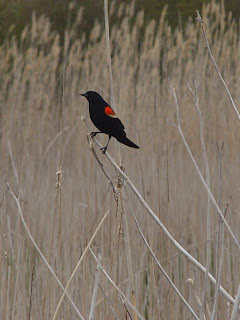Two years ago now I started a novel for adults, a book that I thought I'd finished last March, until I started it all over again. Almost every single thing about this book has changed, but my protagonist's first name has not. She is and she always will be Becca, a name I love, a name I feel particularly close to, thanks to my friendship with Becca of the hugely wise and always calming book blog known as Bookstack. Becca reads fine books and she tells us what she thinks—honestly, without rancor. Many, many of my own book purchases have been made in the wake of a Bookstack review.
Today I am blessed to be featured on Becca's Bookstack, with a truly generous review of
You Are My Only. The odd thing about this is that I had planned to write about Becca here today. Planned to release this small excerpt from the novel that bears her name. I am but 26,000 words into this utterly redesigned book. I am writing slow, letting the story find me. But here is Becca, a snatch of fiction, surely, but written with the sense of an angel close behind me as I write.
In Siena she drank the Chianti Vin ordered. She walked beside him, down the crowded streets, in the shuffle between shops and bicycles and flower vendors, rounds of cheese, painted porcelain, trays of marbled paper. She walked among the bright silk flags that marked out each contrade—Unicorn, Snail, Caterpillar, Goose, Tortoise, Dragon, Eagle, Ram, Owl, Shell, Porcupine, Giraffe, Wave, Wolf, Panther, Forest, Tower—each with its own emblem and history of pride. The colored silks hung from poles and windows. They were draped across the shoulders of women and wrapped around the heads of men, and in every contrade, Vin bought Becca a scarf and knotted it around her waist until she wore a skirt of all Siena, and when the wind blew the colors flew up into her frames.
She photographed second hands and steeples.
She photographed herds of butterflies.
She photographed Vin asleep, Vin in the window, framed by the quivering moon.
 It’s been a few years since they let the patients go—herded the inmates away in buses; slipped the loonies down the loop in cars; did not see the only escapee who shuffled straight to the river, crab walked the bogged banks, and paddled deep into the channel. So that she wasn’t found until three days later—a turtle egg in the nest of her hair, a chewed strip of rubber on her wrist. A child made the discovery. He’d been playing. He had thought at first that she was Galatea, the milk-white one in his book of myths. No one would believe him when he came shouting, spinning home—mud to his elbows, shoes undone.
It’s been a few years since they let the patients go—herded the inmates away in buses; slipped the loonies down the loop in cars; did not see the only escapee who shuffled straight to the river, crab walked the bogged banks, and paddled deep into the channel. So that she wasn’t found until three days later—a turtle egg in the nest of her hair, a chewed strip of rubber on her wrist. A child made the discovery. He’d been playing. He had thought at first that she was Galatea, the milk-white one in his book of myths. No one would believe him when he came shouting, spinning home—mud to his elbows, shoes undone.
“You leave your imagination out of this,” his mother said.
“I’m swearing,” he told his mother, crossing his heart.
 There are few things more gratifying than successful literary novelists. I myself can't get enough of their stories, their confessions.
There are few things more gratifying than successful literary novelists. I myself can't get enough of their stories, their confessions.
It is a lovely thing, therefore, to watch Jeffrey Eugenides in conversation with Sam Tanenhaus of the New York Times—to hear what this multi-platinum author of The Virgin Suicides and Middlesex has to say about the work that he has done over the years and the city, Detroit, that has fueled his imagination.
I was intrigued, especially, by the way Eugenides has determinedly evolved his own work—moving, as he says, from a "preoccupation with language" (The Virgin Suicides) toward a focus on plotting (Middlesex) toward what he describes as an emphasis on deeper characterization and psychological portraiture—the "deepening realism" that marks his current work. I loved his overt commitment not just to changing form, but to raising the stakes.
At the moment I am deeply engaged in the early research and writing of a novel for adults. It's not as if I have not tried to write novels for adults in the past; I have written many that have failed. I wasn't ready. I needed to take the cross-wise steps that years spent writing memoir, poetry, history, fable, criticism, and young adult novels ultimately yielded. To learn to trust language, in memoir. To learn to break it apart, in poetry. To pursue the almost impossible detail through historical research. To tell a story through YA novels. To bend a story, through fable. To sustain a certain vulnerability through the blog. Having never taken a writing course (as an adult, I attended three summer workshops), I have had to teach myself to write, and the road that I've traveled has often stumped out, looped back, and confused.
But it has also brought me here. It has given me both foundation and framework. Tools with which to work against an idea I can't quite yet contain.






I have chills, plain and simple. I love your writing, and am touched and pleased to this tiny part of me tucked within it.
And I desperately want those scarves :)
What lovely synchronicity.
Wow, what a wonderful selection from the new book. Becca is a lucky gal to have inspired the protagonist's name. Wonderful scarves and photography, which I adore.